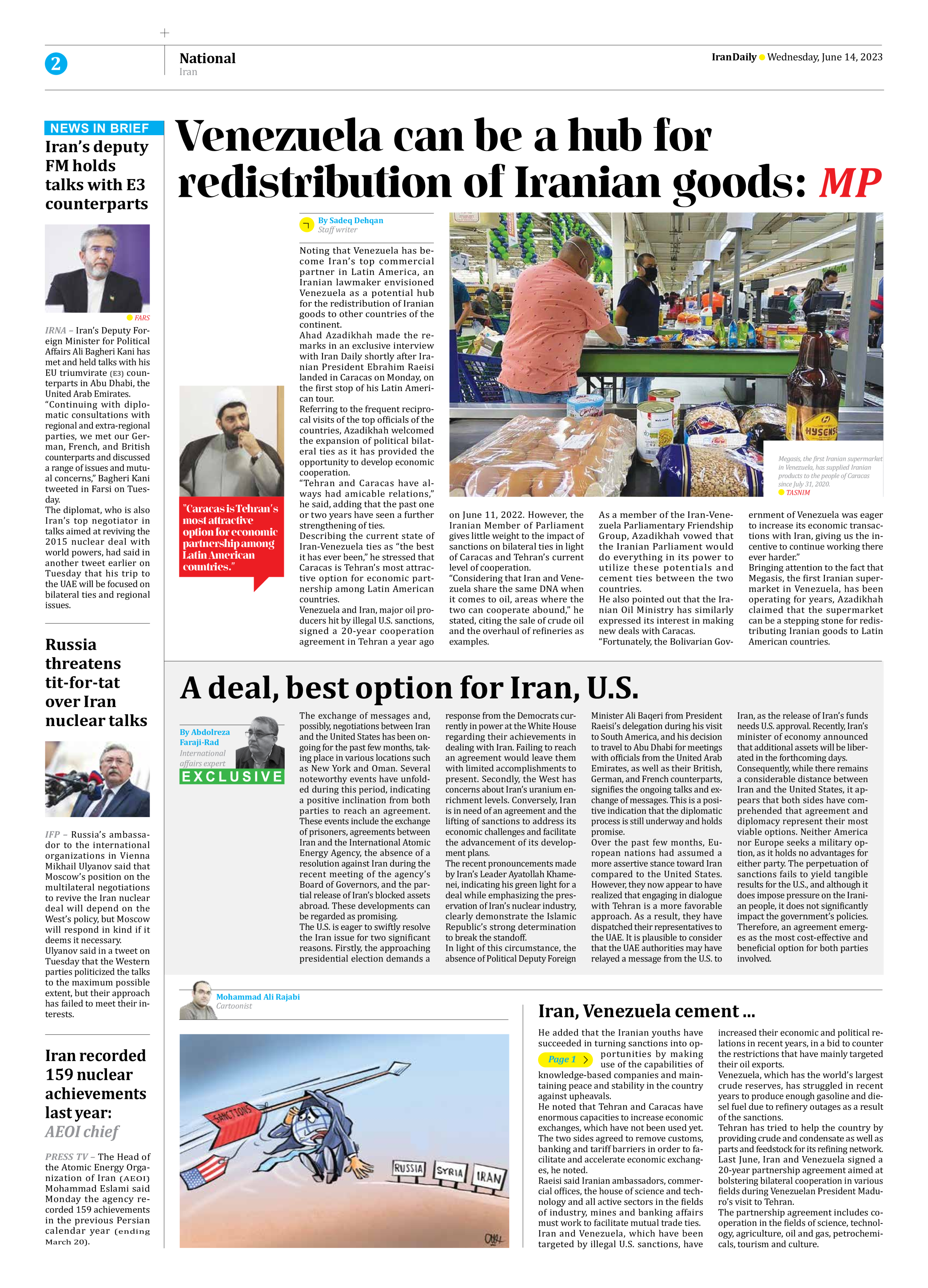
A deal, best option for Iran, U.S.
By Abdolreza Faraji-Rad
International affairs expert
The exchange of messages and, possibly, negotiations between Iran and the United States has been ongoing for the past few months, taking place in various locations such as New York and Oman. Several noteworthy events have unfolded during this period, indicating a positive inclination from both parties to reach an agreement. These events include the exchange of prisoners, agreements between Iran and the International Atomic Energy Agency, the absence of a resolution against Iran during the recent meeting of the agency’s Board of Governors, and the partial release of Iran’s blocked assets abroad. These developments can be regarded as promising.
The U.S. is eager to swiftly resolve the Iran issue for two significant reasons. Firstly, the approaching presidential election demands a response from the Democrats currently in power at the White House regarding their achievements in dealing with Iran. Failing to reach an agreement would leave them with limited accomplishments to present. Secondly, the West has concerns about Iran’s uranium enrichment levels. Conversely, Iran is in need of an agreement and the lifting of sanctions to address its economic challenges and facilitate the advancement of its development plans.
The recent pronouncements made by Iran’s Leader Ayatollah Khamenei, indicating his green light for a deal while emphasizing the preservation of Iran’s nuclear industry, clearly demonstrate the Islamic Republic’s strong determination to break the standoff.
In light of this circumstance, the absence of Political Deputy Foreign Minister Ali Baqeri from President Raeisi’s delegation during his visit to South America, and his decision to travel to Abu Dhabi for meetings with officials from the United Arab Emirates, as well as their British, German, and French counterparts, signifies the ongoing talks and exchange of messages. This is a positive indication that the diplomatic process is still underway and holds promise.
Over the past few months, European nations had assumed a more assertive stance toward Iran compared to the United States. However, they now appear to have realized that engaging in dialogue with Tehran is a more favorable approach. As a result, they have dispatched their representatives to the UAE. It is plausible to consider that the UAE authorities may have relayed a message from the U.S. to Iran, as the release of Iran’s funds needs U.S. approval. Recently, Iran’s minister of economy announced that additional assets will be liberated in the forthcoming days.
Consequently, while there remains a considerable distance between Iran and the United States, it appears that both sides have comprehended that agreement and diplomacy represent their most viable options. Neither America nor Europe seeks a military option, as it holds no advantages for either party. The perpetuation of sanctions fails to yield tangible results for the U.S., and although it does impose pressure on the Iranian people, it does not significantly impact the government’s policies. Therefore, an agreement emerges as the most cost-effective and beneficial option for both parties involved.







